About A Dog Photography in St. Cloud, St. Paul & Minneapolis MN | 52 Weeks is a blog circle with a theme for every week (which means we all link to each other, links are found at the end of the post).
The area in focus of an image is called depth of field. It can be very narrow & shallow with loads of blur or deep & vast so that everything from where you stand to the horizon is in focus. Portraits trend into the narrow end for subjects that pop against the background, while landscapes trend into deep depths of field.
Adjusting your aperture opening (aka f stop) is the main way you can manipulate depth of field. Small f numbers (ie f1.4 / f1.8 / f2.8) are wider aperture openings and boast narrow depth of field. Larger f numbers (ie f8 / f11 / f16) are narrow aperture openings and are key to deep depth of field.
[twenty20 img1=”29331″ img2=”29332″ offset=”0.8″]
Above: first image is 20mm at f1.4 & second image is 20mm at f8 / Can you see the difference? Look esp at the things on the shelves
Easy peasy!
Except….
Aperture isn’t the only thing that affects depth of field. Say what?
Depth of field is also manipulated by distance to your subject. Skootch closer and your depth of field gets narrower. Take a step back and your depth of field gets deeper. Without changing any settings!
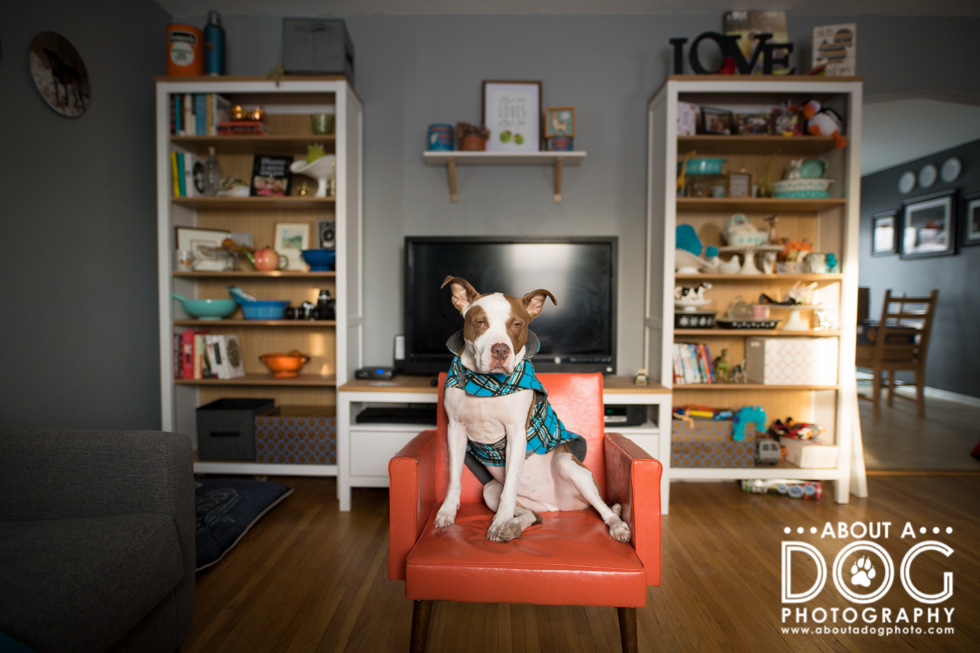
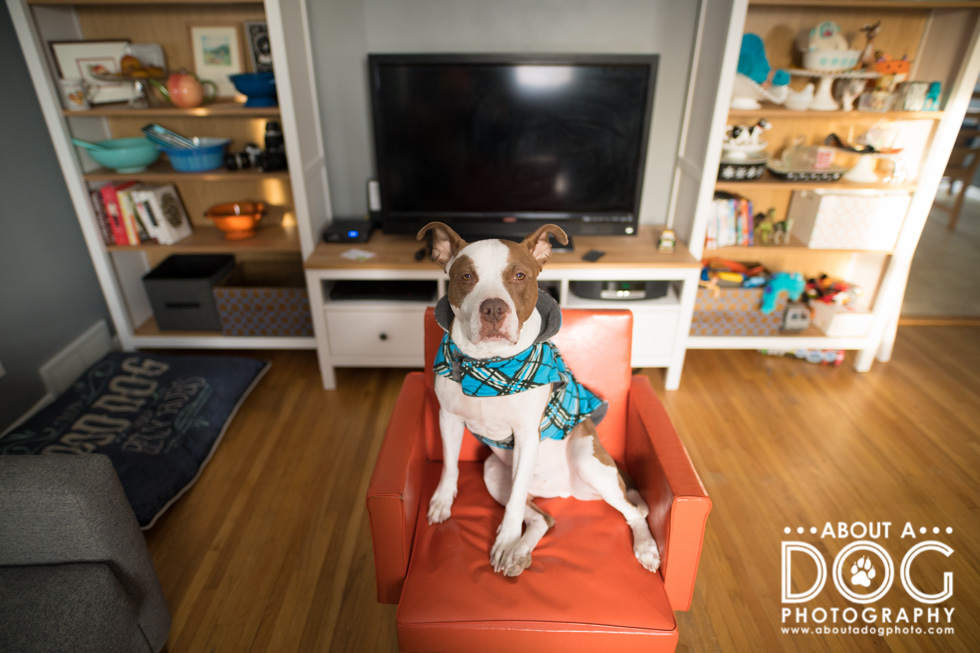
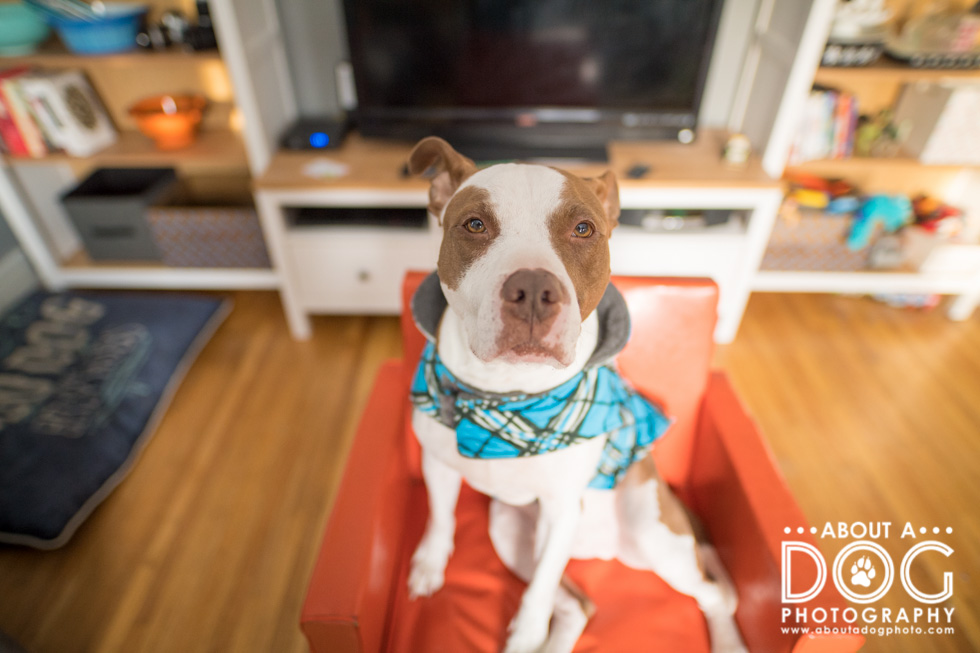
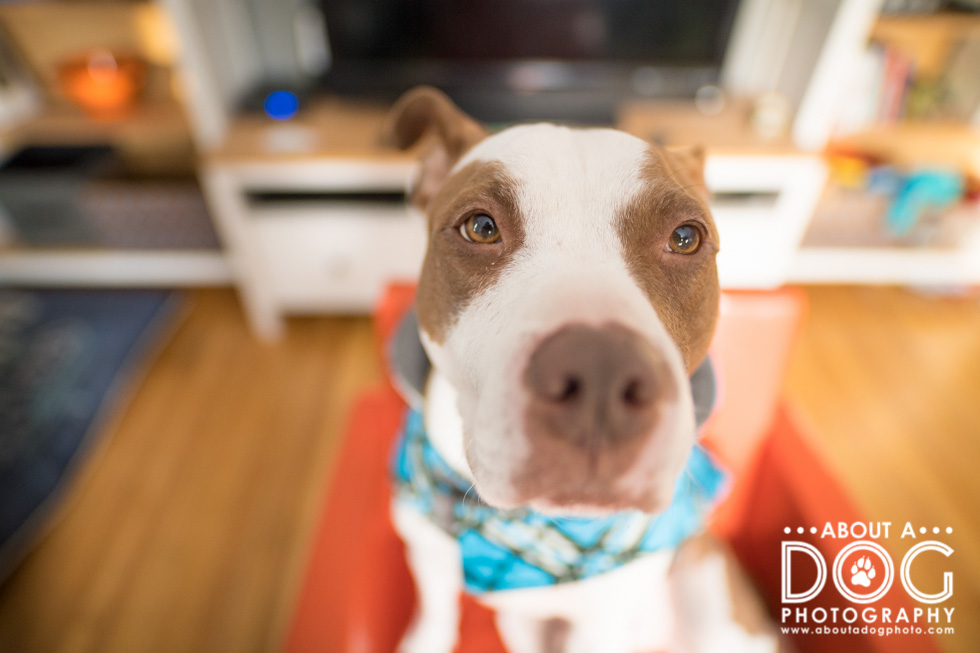
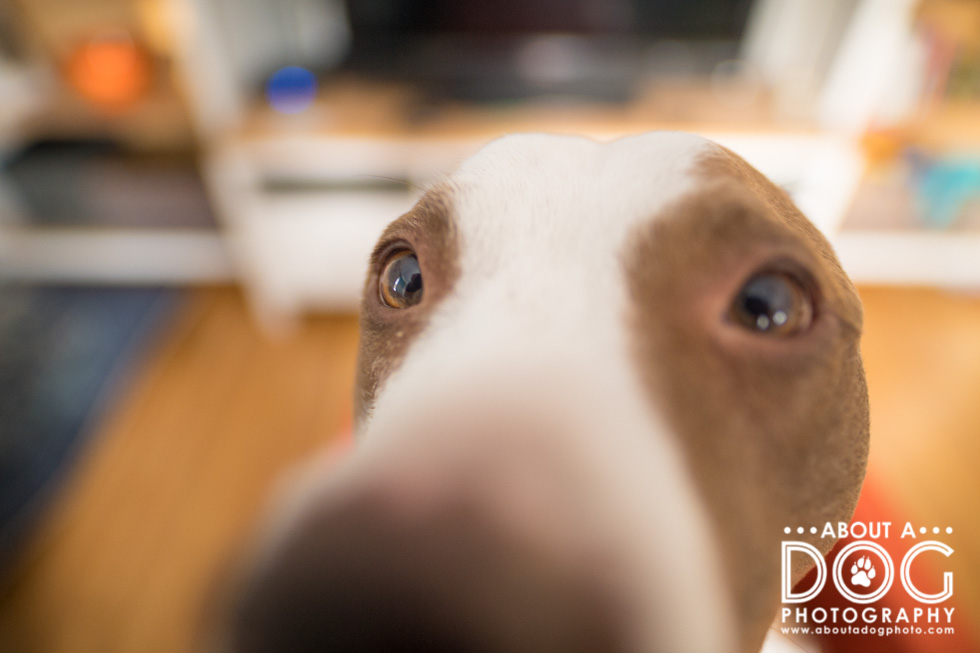 Each of the above images are at 20mm & f1.4. Notice how much more blur (aka narrower depth of field) is happening to the background as we move closer to Bender.
Each of the above images are at 20mm & f1.4. Notice how much more blur (aka narrower depth of field) is happening to the background as we move closer to Bender.
Additionally… depth of field changes with the focal length of your lens. The longer your focal length (ie 70mm, 135mm, 200mm) the narrower your depth of field, whereas a wider focal length (ie 15mm, 24mm, 35mm) the deeper you depth of field. Which in a way ends up negating the aperture adjustment for depth of field (to a degree, aperture still plays an important role). Crazy!
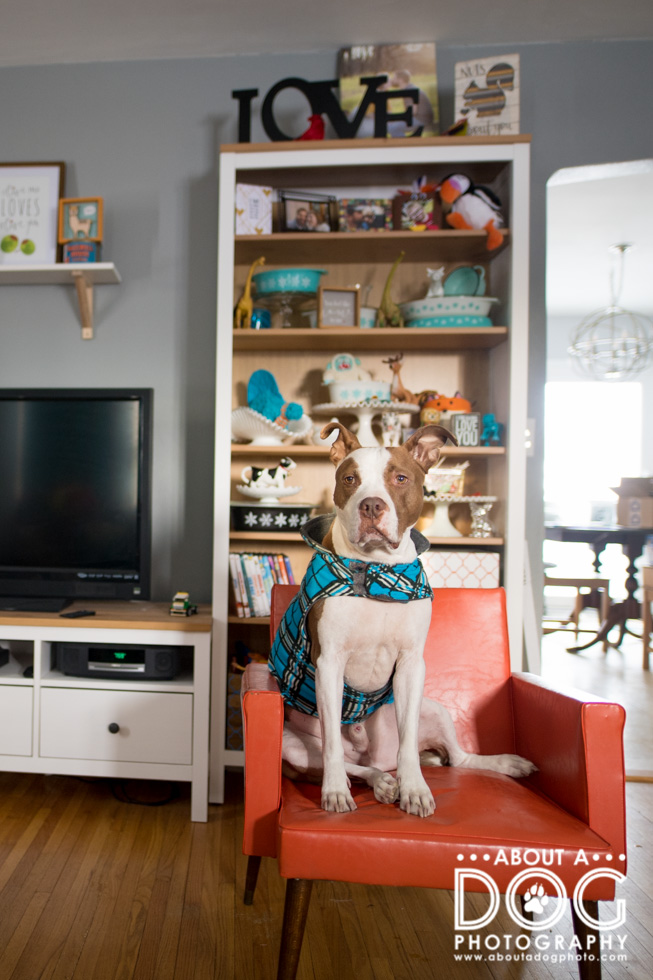
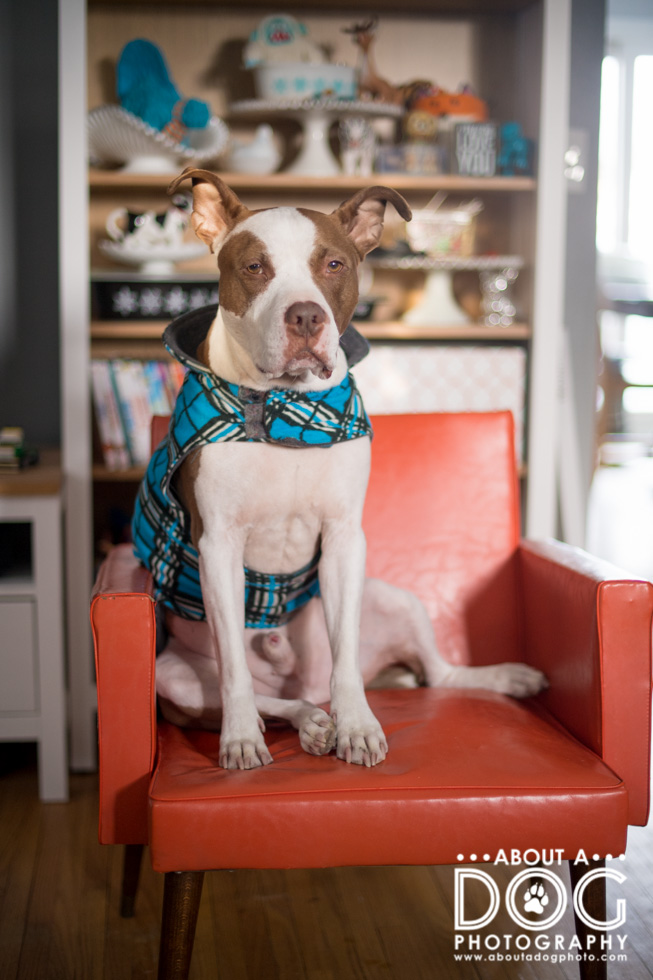
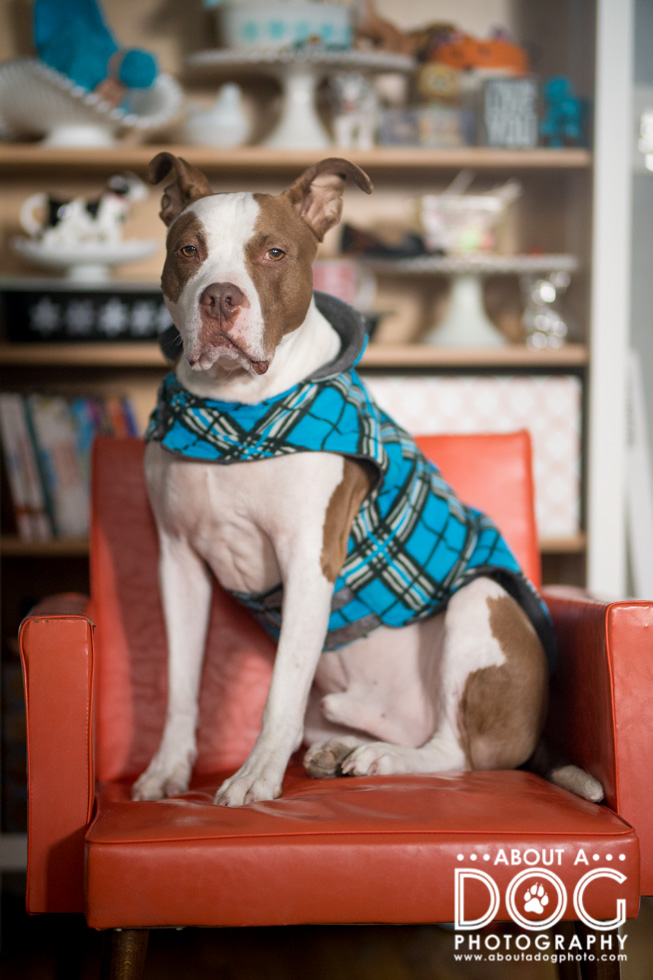
Above: first image is 20mm f1.4, second is 50mm f1.4 and third is 85mm f1.4. Notice how the background blur changes between each?
[twenty20 img1=”29340″ img2=”29341″ offset=”0.8″]
A classic “headshot” – the first image is a 50mm at f1.4 and the second is at 85mm at f1.4. Similar framing, but notice how different the blur is. That’s the difference in depth of field for a longer focal length lens.
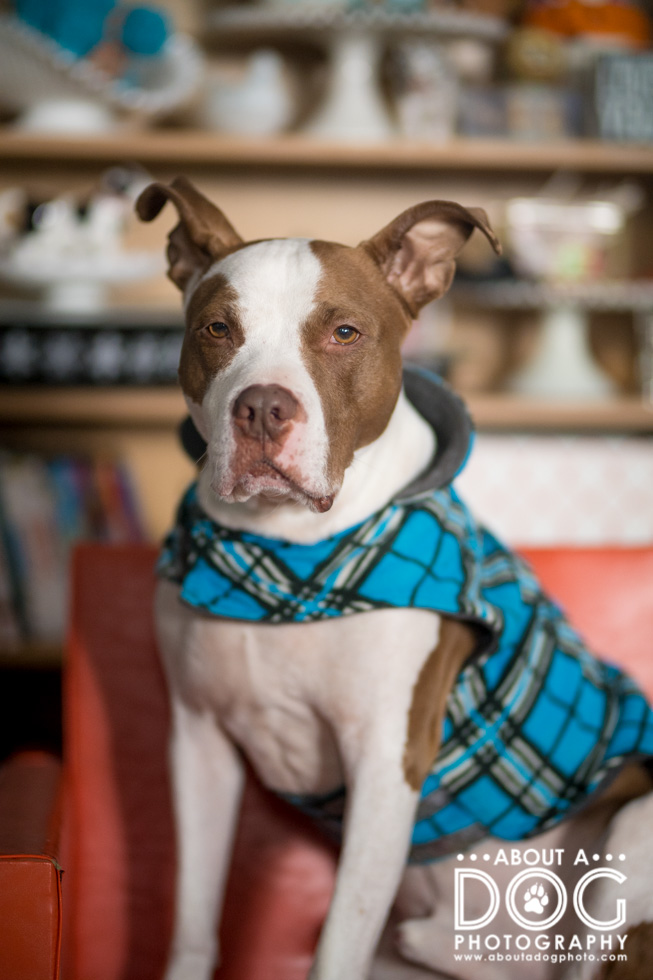
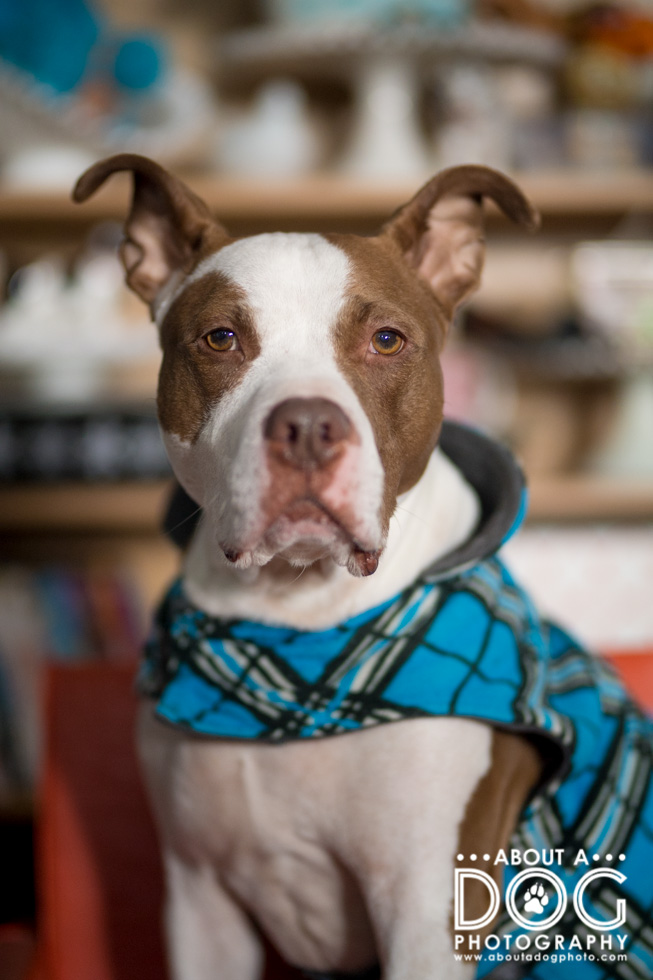
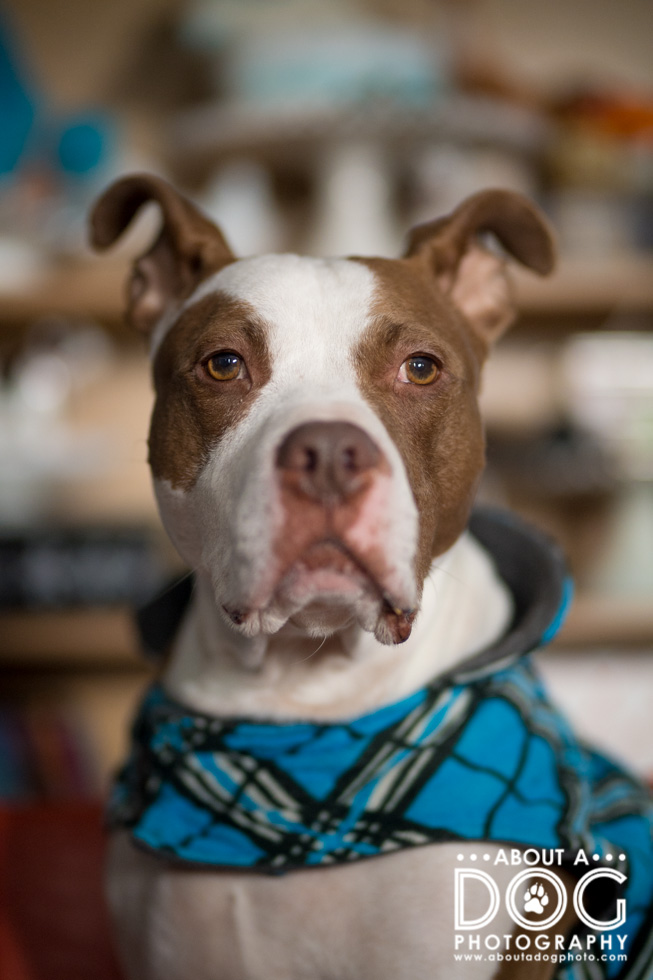
Another example above of manipulating depth of field with moving closer to your subject – this time with 85mm at f1.4. Not only does the background get blurrier but the section of focus on Bender’s face gets narrower so that only his eyes are really in the focus area.
Neato! Now you can manipulate your depth of field not only by aperture, but by distance to subject or using a different focal length!
Next visit Linda Perdue, VP Shoots Photography serving the Tampa Bay area, Florida to see her take on depth of field.
